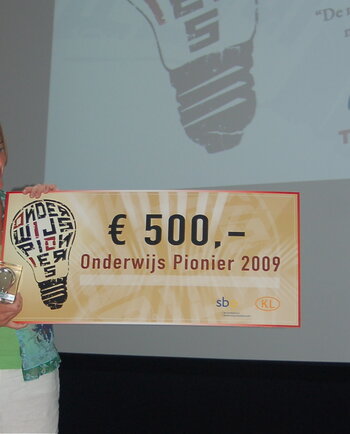
Free - as in bicycles
Paul Keller Adviseur auteursrechtenbeleidOver the past two days i have been attending an workshop on the ‘The Socio-Economic Impact of Social Computing: validation and policy options’ organized by the Institute for Prospective Technology Studies (IPTS) in Sevilla, Spain. The IPTS is one of the 7 research institutes of the Joint research directorate of the European Commission and researches issues related to technological innovation. Starting this summer Kennisland will collaborate with the IPTS in a new project that will investigate the opportunities for the integration of immigrants and ethnic minorities in Europe provided by ICT and social computing (more about that when the project starts).
This week’s workshop was intended to gather feedback from external Experts on the research the IPTS has been doing on the impacts of Social Computing (social computing is EU speak for web 2.0). The workshop did not disappoint and brought a number of interesting discussions to the forefront: From fundamental questions about research methodology, to the issue of sustainability of communities and services and the question if there is indeed a need for european (or national) policy interventions in this dynamic field.
One of the most fundamental questions raised during the workshop was the question of data quality.Much of the available data regarding the use (and users) of social computing applications and communities is supplied either by commercial consulting companies, the companies running social computing services themselves or individual bloggers.
There is almost no data that is gathered through empirical studies of users (and user behavior). This poses important questions regarding the validity of the data (can it be trusted) and regarding the responsibility of research institutions working with this data. It was suggested that the fact that the IPTS research reports on social computing readily cite data from such sources these reports increases the relevance of such data (future references to the cited data points will include some kind of endorsement from an ‘independent’ research center) which is highly problematic as long as the validity cannot be assessed.
On the other hand ignoring the publicly available data does not seem to be an option either as it is often the only available data regarding the social practices under study and as a result of this, ignoring it would mean leaving the discourse to those parties that produce such data.
With regards to this, there seemed to be a consensus among the participants that there is an urgent need to develop acceptable minimum standards for working with (commercially provided) usage data. In the meanwhile it seems to be important to clearly point out the origin of such data sources.
When it comes to actual social computing practices under study the most interesting question addressed the sustainability of current structures and communities: There is serious doubt that the current business models (or organization structures) of social computing will be sustainable in the long run.
Communities like wikipedia face important challenges is raising and allocating increasing amounts of financial resources and combining this with the non-commercial ethics and motivations of contributors. On the other side there is skepticism if social networking applications (such as facebook, myspace or hyves) and user generated content platforms (such as youtube) will be able to operate based on advertising revenue alone (especially against a trend of slowing growth that is being observed since the second half of 2007).
Finally some participants also expressed concerns that presence of free services (like wikipedia) that effectively take certain economic activities (selling encyclopedias) out of the realm of the market (and into the commons) is indeed beneficial when seen from the perspective of the i2010 objectives of the European Union as they do not contribute to measurable (in terms of GDP) economic activity.
It seems that a better understanding of the economics of ‘free’ is essential for us to understand the social and economic impacts of social computing. Given this is might be beneficial to have alook at two recent artciles (blog posts) that attempt to uncover the underlying business models:
‘‘Free! Why $0.00 Is the Future of Business‘ by Chris Anderson (Editor in chief of Wired and author of ‘The Long Tail’) and ‘Better Than Free‘ by Kevin Kelly. Kelly and Anderson both come up with lists of reasons for people to pay for certain goods and services even though they are also available for free (Kelly) and of mechanisms that enable service and goods providers to offer things for free and still realize income.
A great example of such a ’semi free’ service can currently be enjoyed by the inhabitants (and visitors) of Sevilla: Free bicycles. The municipality of Sevilla operates a free (for the first 30 minutes) rental scheme for bicyles that enables any registered user to pick up bicycles at one of the 100 (or so) rental stations and drop it of at another one:
Sevici is modeled after the highly successful Velib service in Paris (and being operated by the same advertising company). The service can be offered free (or almost free as there is a one-time registration fee) because in exchange for operating the service the city of Sevilla has authorizes the service providers to put up billboard advertisements in a number of places within the city. This deal not only provides free bike rides to the citizens of Sevilla, but also offsets the intrusive presence of advertisements is the cities public spaces with an direct increase of quality of life (ubiquitous free bicycles). At least in this case there is very little discussion about the sustainability of the service…
cc-by-nc-sa picture by Eloy Sancho


